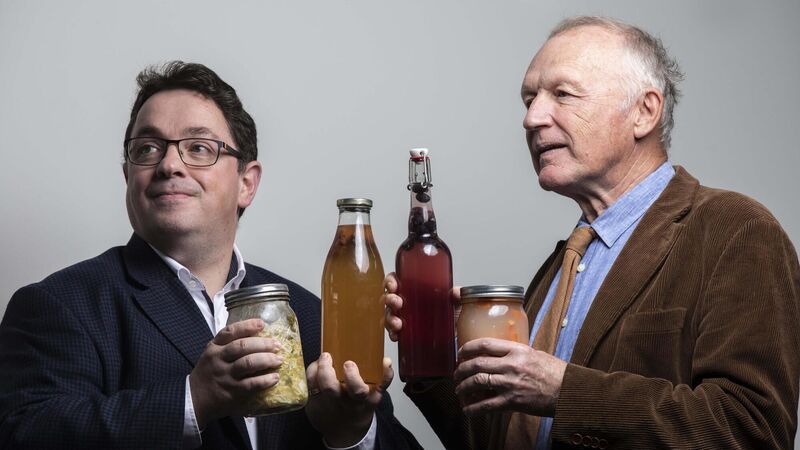How you can eat to beat stress with a gut-friendly diet

Prof John F Cryan and Prof Ted Dinan coined the term ‘psychobiotic diet’ almost a decade ago: “It’s a way of describing eating for the microbiome to support mental health.” Pic: Clare Keogh
Try from €1.50 / week
SUBSCRIBE
Prof John F Cryan and Prof Ted Dinan coined the term ‘psychobiotic diet’ almost a decade ago: “It’s a way of describing eating for the microbiome to support mental health.” Pic: Clare Keogh
We are what we eat — but does what we eat also impact our stress levels? New research from UCC would suggest so.
In recent years we have become aware of the tangible links between body and brain. We’ve learned new terms like gut microbiota — the two kilos of microorganisms that live in your digestive tract — and how they can significantly impact brain health and everyday mood.
Already a subscriber? Sign in
You have reached your article limit.
Annual €130 €80
Best value
Monthly €12€6 / month
Introductory offers for new customers. Annual billed once for first year. Renews at €130. Monthly initial discount (first 3 months) billed monthly, then €12 a month. Ts&Cs apply.
CONNECT WITH US TODAY
Be the first to know the latest news and updates
Newsletter
The best food, health, entertainment and lifestyle content from the Irish Examiner, direct to your inbox.
Newsletter
The best food, health, entertainment and lifestyle content from the Irish Examiner, direct to your inbox.

Our team of experts are on hand to offer advice and answer your questions here
© Examiner Echo Group Limited